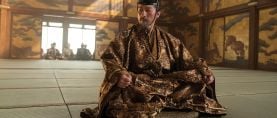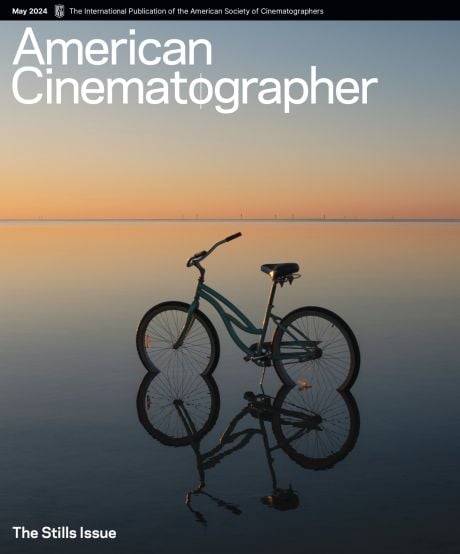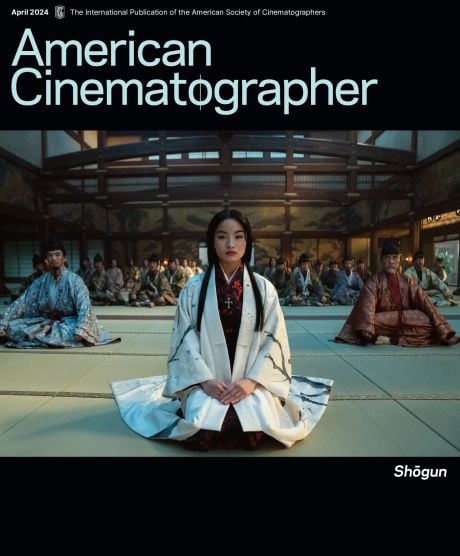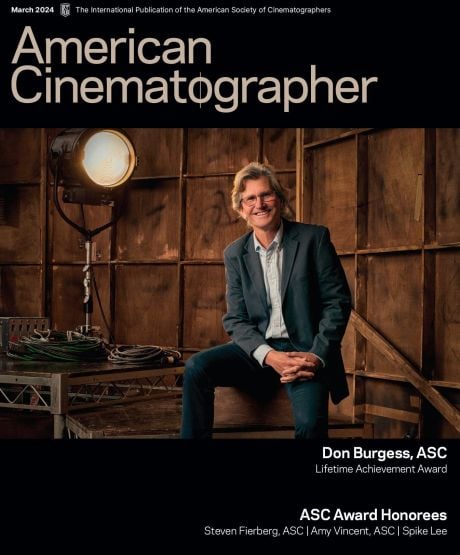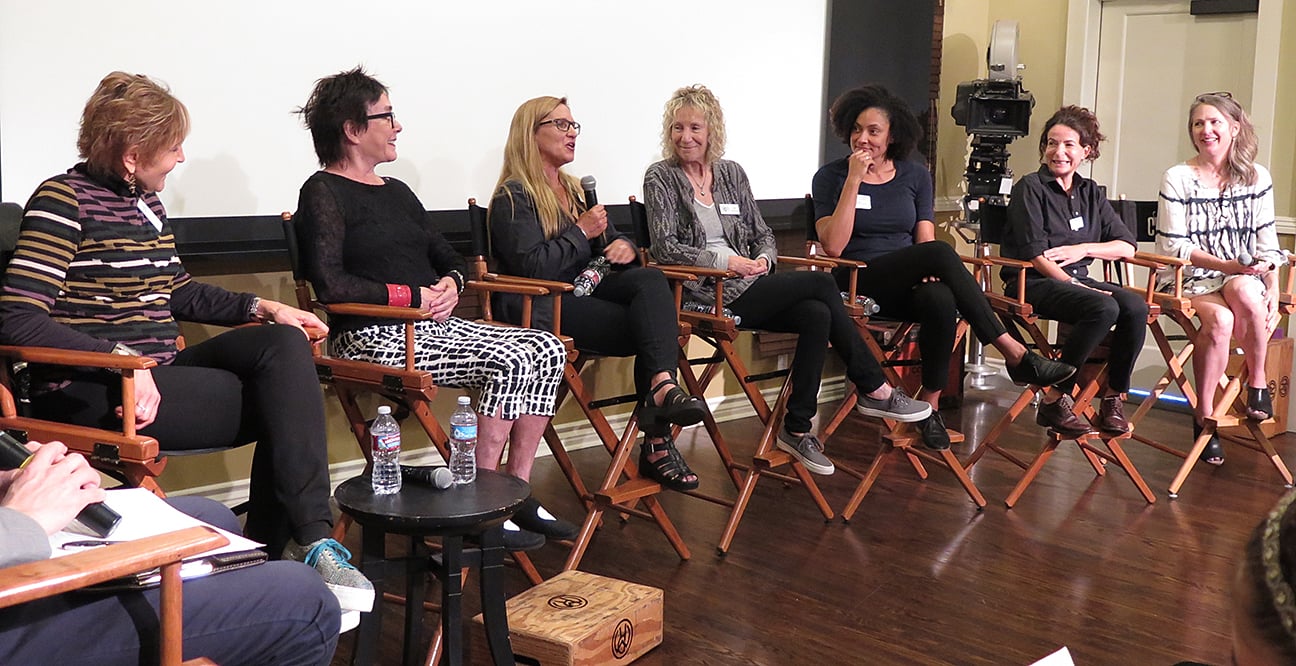
Open House During “Inspiration” Event at the ASC
Cinematographers and other professionals practice some sisterhood at the Clubhouse during a “Day of Inspiration.”
Photos by Visi Mooradian
The American Society of Cinematographers organized an historic event on Saturday, October 22, when 140 women cinematographers, operators and other industry professionals gathered for a “day of inspiration.” ASC President Kees van Oostrum introduced the event, as a “first” in the ASC’s nearly 100 years of existence, and pointed out that, of the ASC’s current 350 members, only 15 are women. “Those 15 have done a lot of work in the industry to change assumptions,” said van Oostrum, who credits ASC events coordinator Patty Armacost and president’s assistant Delphine Figureas for their expert running of the organization. “Our cultural heritage could use some serious adjustments.”
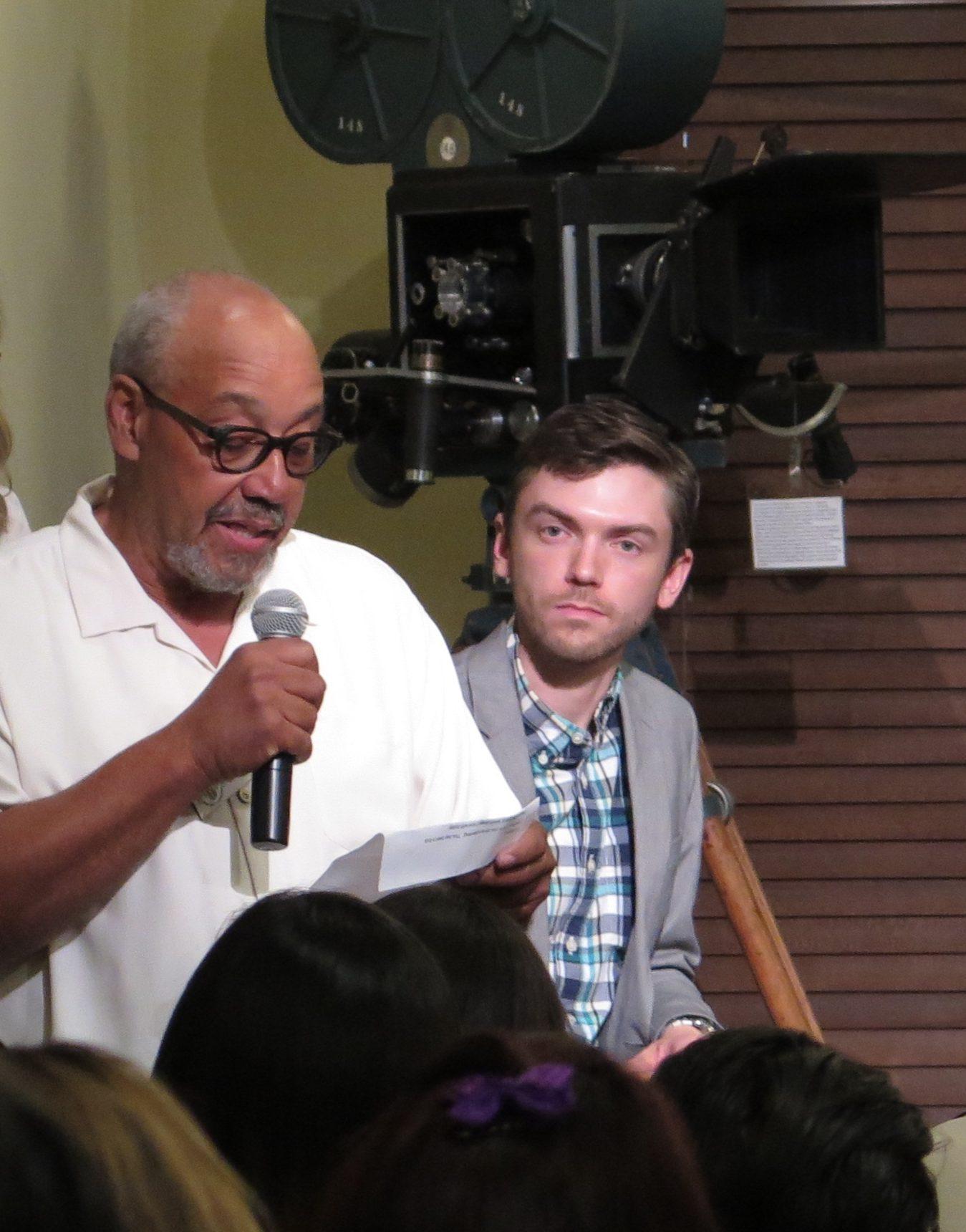
The Saturday event was also the result of a new mission for the 98-year-old professional organization, said van Oostrum, pointing to the Society’s recently formed Vision Committee, co-chaired by Cynthia Pusheck, ASC and John Simmons, ASC. Cinelease, Panavision and SIM Group co-sponsored the event.
Pusheck and Simmons welcomed the packed room. “This is the first event at the Clubhouse where camerawomen have outnumbered cameramen,” said Pusheck to laughter. She described how Brianne Murphy, the ASC’s first female member, pushed her way into the union and finally was invited to join the Society. “We almost named the day after her,” she said. “Seven of us became members in the last five or six years, so our numbers in the ASC have doubled. I think there’s a chance we could double our numbers again in a few years.”
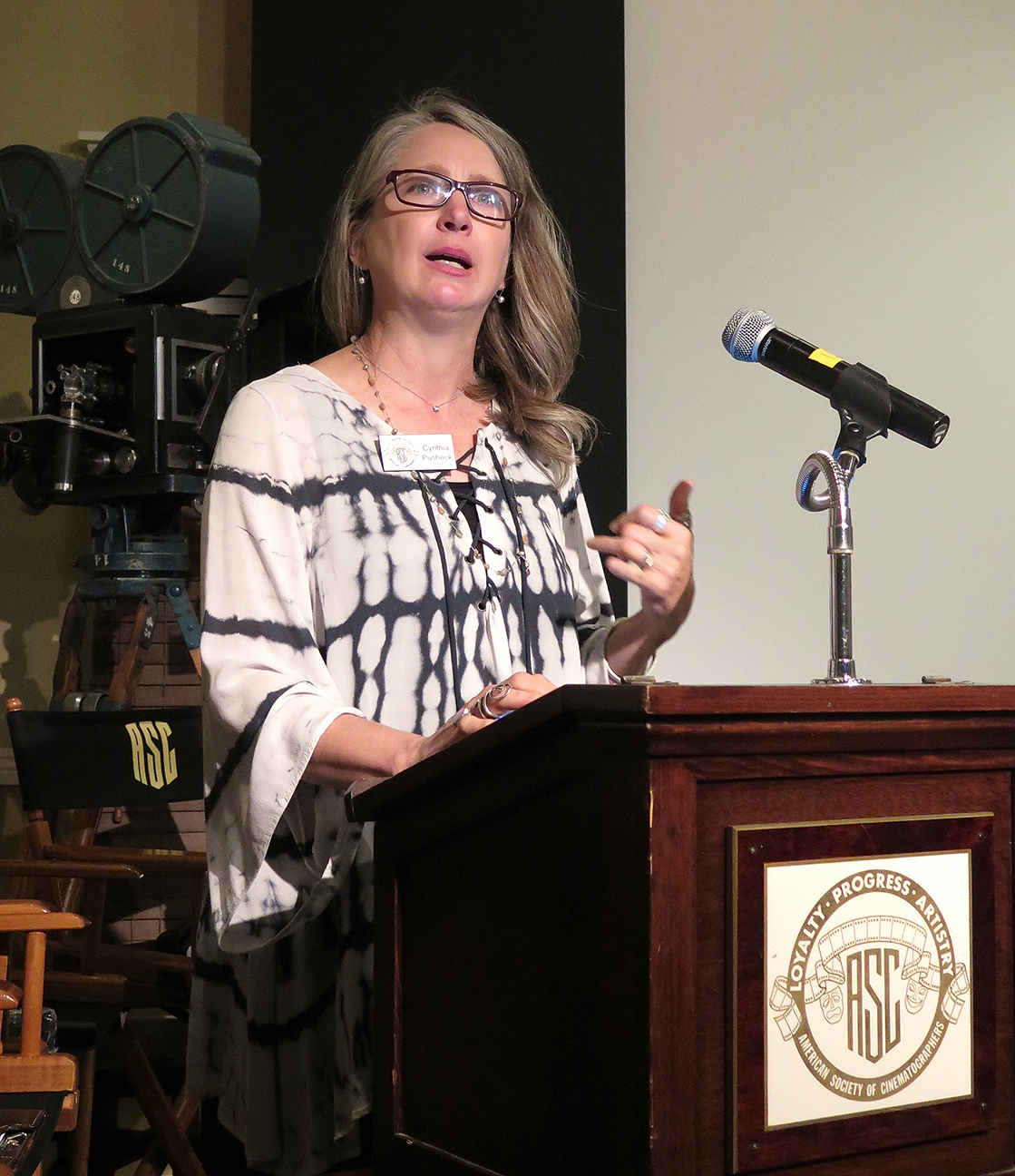
“In this business we have our nose on the grindstone and rarely look up to celebrate where we are,” Pusheck added. “But don’t forget to enjoy the ride. That’s what we want today to be about — to celebrate the women who broke through the barriers, the ones working today and to inspire the next generation.”
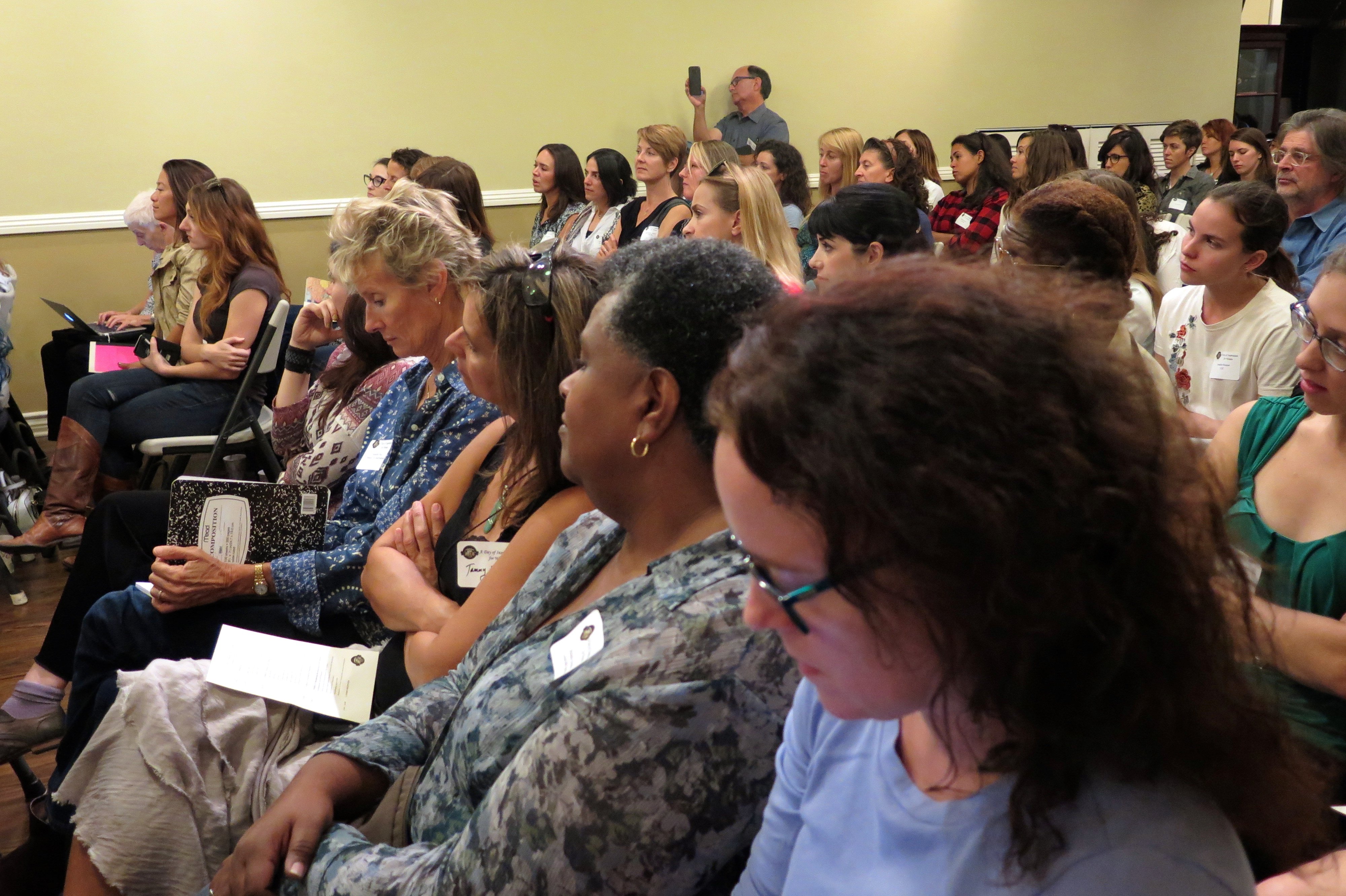
By video, Sandi Sissel, ASC related the story of how Haskell Wexler, ASC helped her early in her career by giving her commercial work to get the hours to join the union and, later, becoming one of her sponsors to join the ASC:
From the set of her latest directing effort, Reed Morano, ASC offered this tongue-in-cheek welcome clip to the audience:
In a 1980s news clip in which Murphy was interviewed, she told a story of how the union business agent at the time told her she’d be able to join the camera guild “over his dead body.” She applied the day of his funeral.
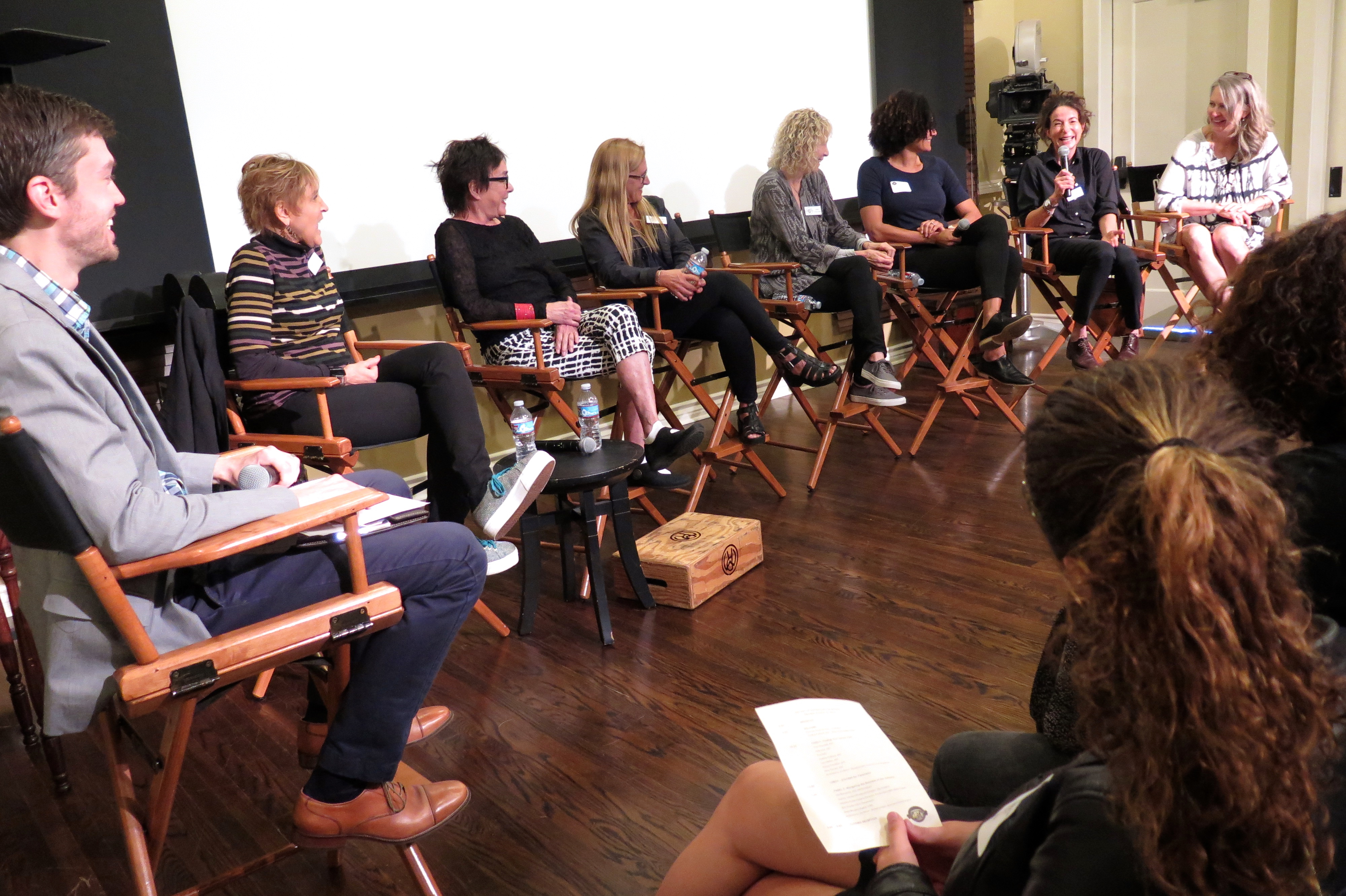
The day was broken up into two panels, both moderated by American Cinematographer executive editor Jon Witmer, with the morning on “Finding Your Career Path” and the afternoon on “Navigating the Business of the Industry.” In the first panel, Joan Churchill, ASC; Judy Irola, ASC; Kira Kelly; Pusheck; Tami Reiker, ASC; Nancy Schreiber, ASC and Amy Vincent, ASC delved into the specifics of their careers.
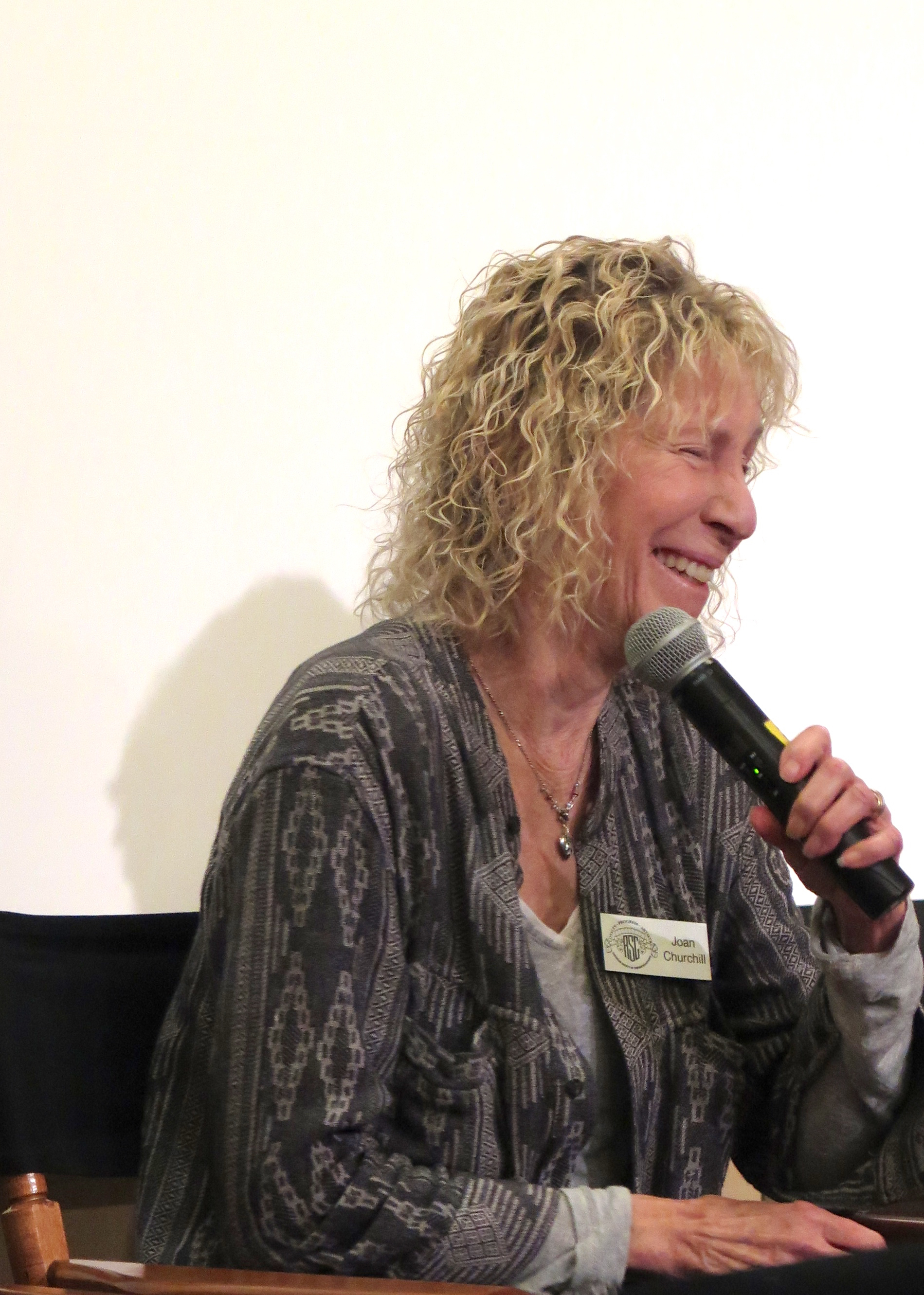
Witmer first asked the panelists what inspired them to enter the industry. Churchill, a documentarian, said she’s “interested in people and love to have an excuse to travel over the world and get into peoples’ minds.” “I never thought I could be a shooter,” she said. “There were no role models. So I started out as an editor. As the men I knew from film school became directors, that’s when I started getting work.”
Schreiber, who came up through the electric department, notes that her undergraduate degree in psychology and “proven more useful” in her film career than she thought it would. She recalls “falling into” filmmaking after she answered an ad in The Village Voice and ended up on an under-crewed project. “The director’s brother was grip and I was electric and neither of us knew anything,” she says. “But I learned everything I could. When I got behind the camera, that was it — it had a life of its own.”
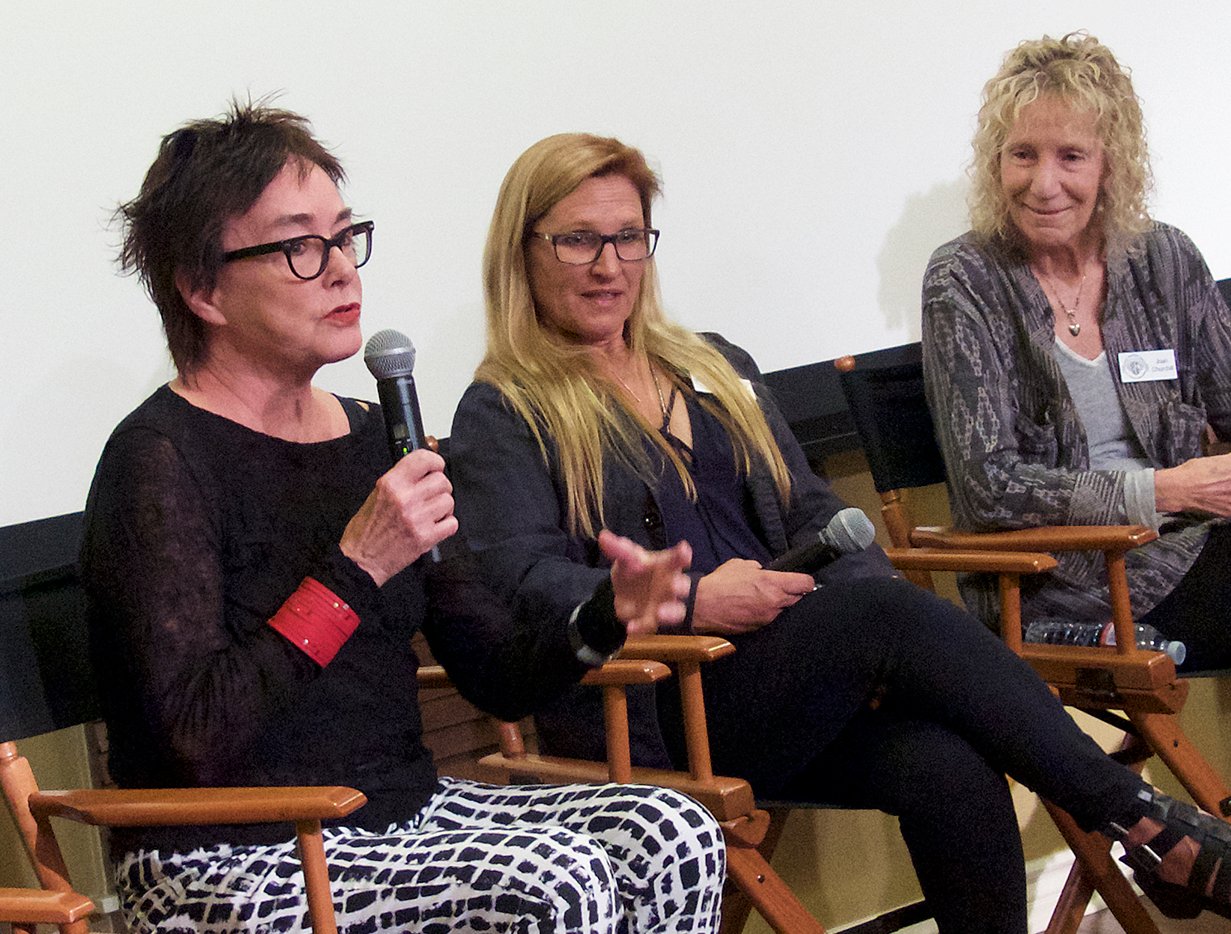
Irola reports that, instead of college, she joined the Peace Corps. “When I came back from Africa, I wanted to get involved politically and very accidentally got into film,” she said, noting that her old friends Sissel and Schreiber got her into the IA local. Another documentarian, she recalls shooting filmmaker Jean-Luc Goddard when he was being pelted with tomatoes and eggs. “And I thought, ‘Wow, this business is great,’” she related. She also recalled working for a cinematographer who was afraid of heights, allowing her to shoot over the edge of tall buildings, and joining a Marxist film collective with six men [one of them being Stephen Lighthill, ASC].”
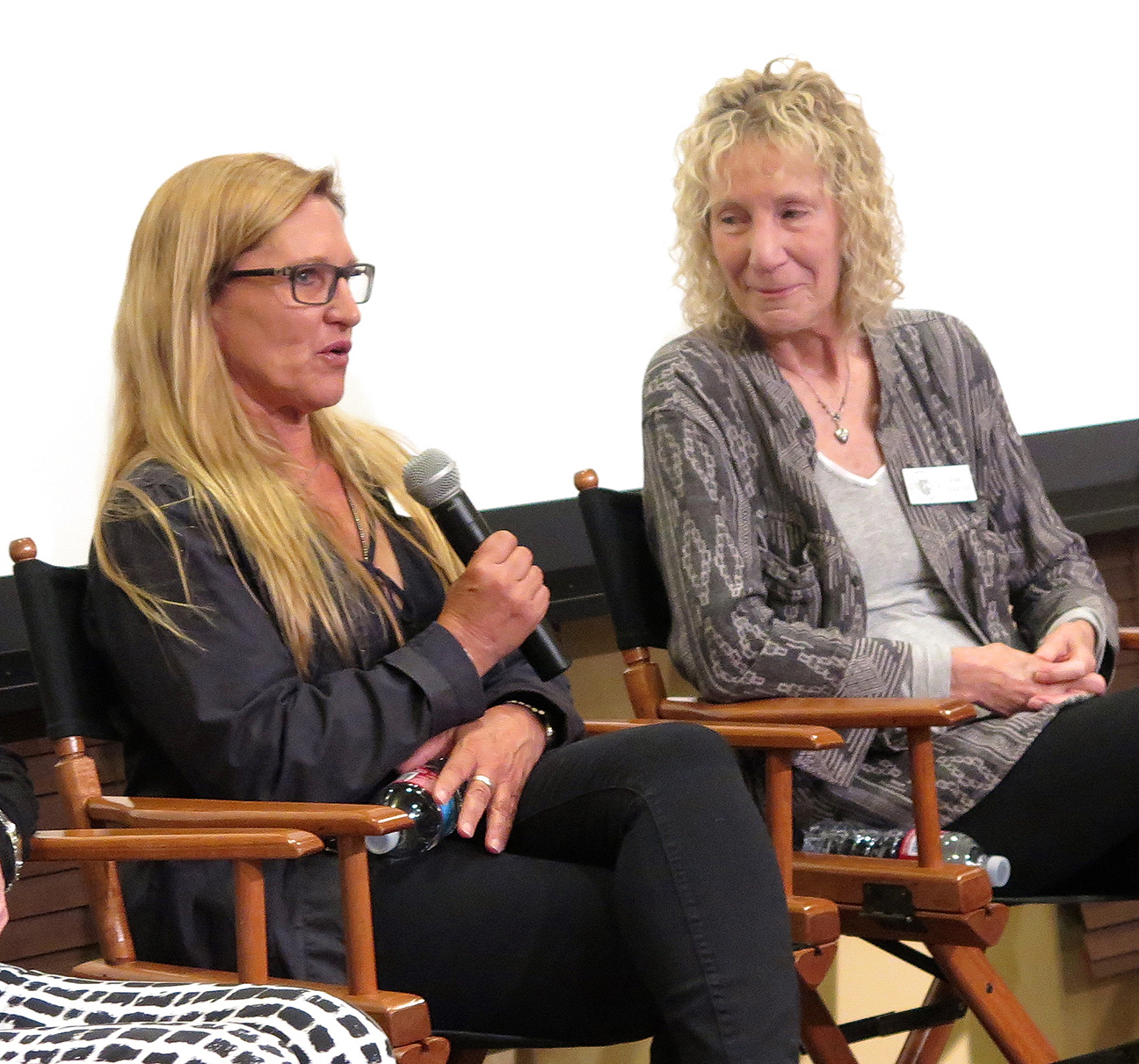
Vincent revealed she was in a pre-med program when she got a work-study job in performing arts and “immediately felt at home. It was black-and-white silent film that inspired me to make movies,” she said. “I was blind to the idea that women didn’t do this. I started as a camera assistant and just started moving up.” She adds that her definition of success has changed over the years. “True success is living the life you want to lead,” she said, noting that she is now volunteering to work with animals and that she also teaches film, which she loves.
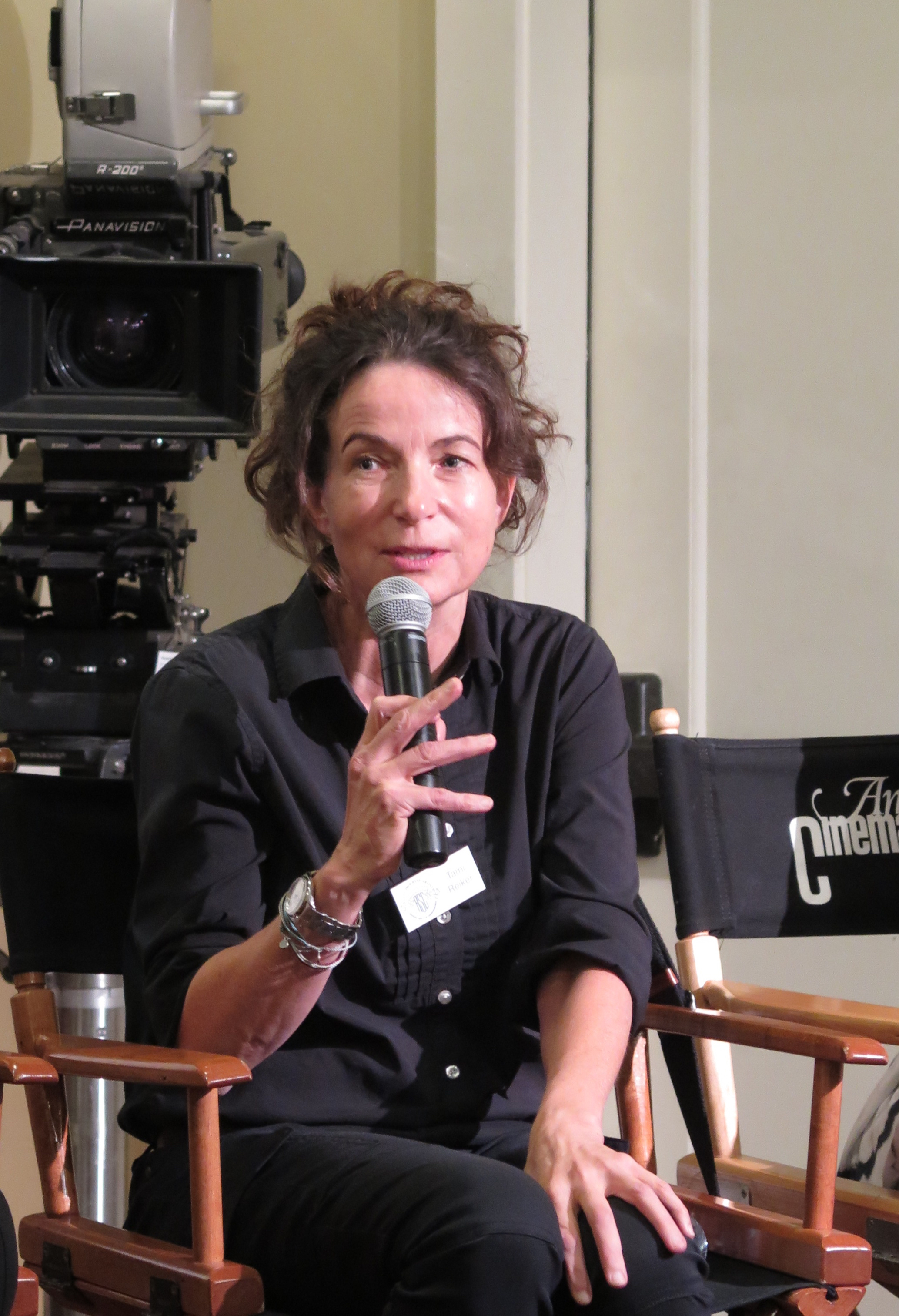
Reiker started with a passion for photography, went to New York University film school and “immediately” had a role model with cinematographer Lisa Rinzler, who had shot the indie feature Forever, Lulu (1987). After working as a camera assistant, Reiker took out a $50,000 loan to buy a camera and began shooting music videos, documentaries and her first feature film. “Having that camera was a big turning point for me,” she said. She had burned out on traveling, but when she had her son, she started traveling again — and found it “amazing again.” “It changed my perspective,” she admits, but says that once her son grew to school age, she had to, again, stick close to home.
Pusheck said she stumbled into Columbia College in Chicago, joined a Film 101 class and “fell in love on day one. But everybody in my class was born with a camera in their hands; I was so intimidated. Years later, none of them are still around. It was a reminder that you just have to keep plugging away.”
For Kelly, lighting was where she felt comfortable initially. “I was petrified of dropping a lens,” she admits. While working in the lighting department on a film, she had a life-changing moment. “The cinematographer let me look through the eyepiece [to see the results of lighting],” she recalled. After that, “I knew this was exactly what I wanted to do.”
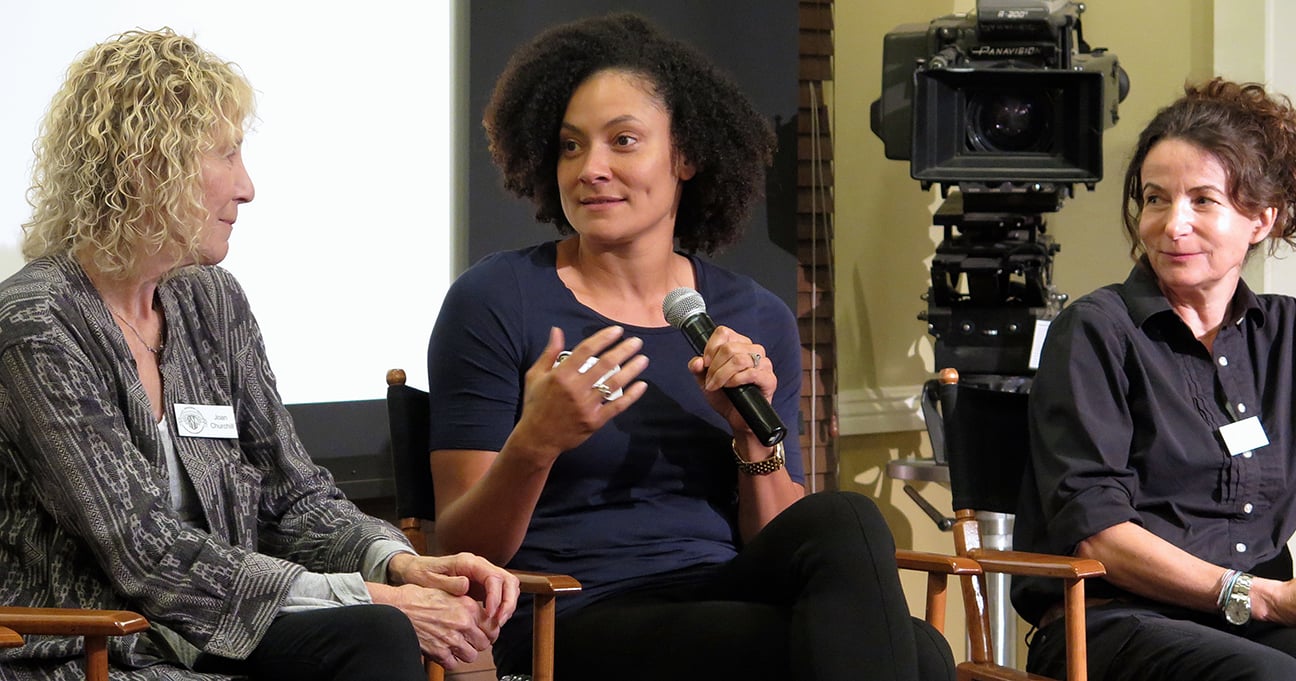
As a young cinematographer, Kelly also enjoyed hearing the stories of her fellow panelists. “I’m still trying to figure out the balance of work and life, and figuring out what the down times mean,” she said. “Sometimes you equate self-worth with how much you’re working. It’s comforting to hear that other people are experiencing the same things.”
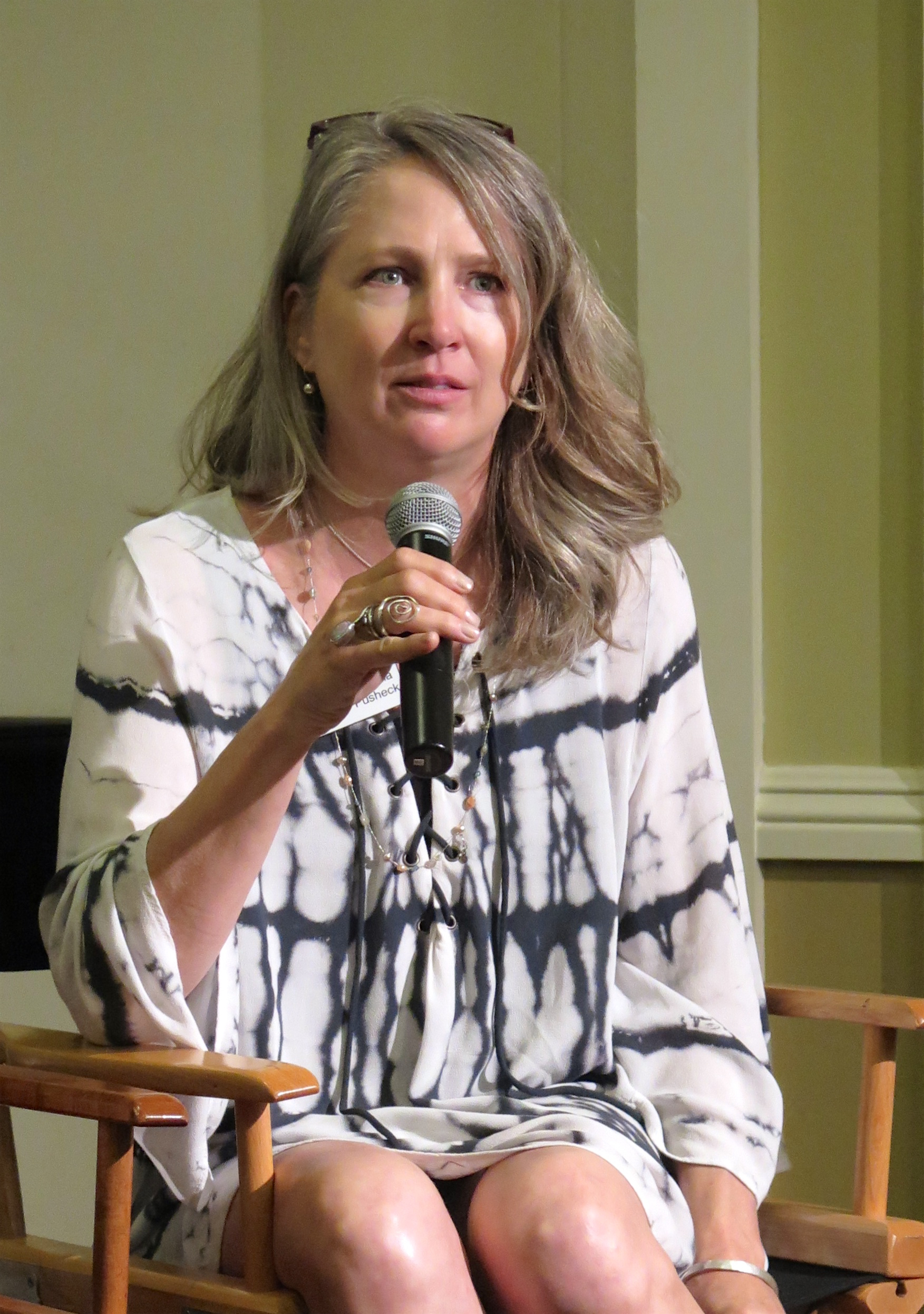
Witmer asked the group about how they navigate the dueling desires of sticking with an established job versus leaving it to step up to a new position. Pusheck recalls being burned out from assisting and deciding to attend AFI to see if she still had the desire to stay in the industry. “The very first little shoot I did, I put my eye to the bad video eyepiece, and I realized — yep, I’m still excited,” she said. But she realized she had to reassess her direction. “That’s when you may not work for awhile — that’s why you save your money,” she said, urging listeners to “find those moments to pick and choose what to do for getting to the next level. Find some of your allies and tell them, ‘Hey, I want to start operating, if you need a C camera.’ Spread the word.”
Churchill worked as an editor for some years, but when she knew she wanted to switch to cinematographer, she admits she was “hungry for a couple of years and spent a lot of time waiting for a call. But I had to make a decision. And then it started to happen. But you have to be comfortable never knowing when your next paycheck or next phone call is coming and find something that gives you joy when you’re waiting for that phone call.
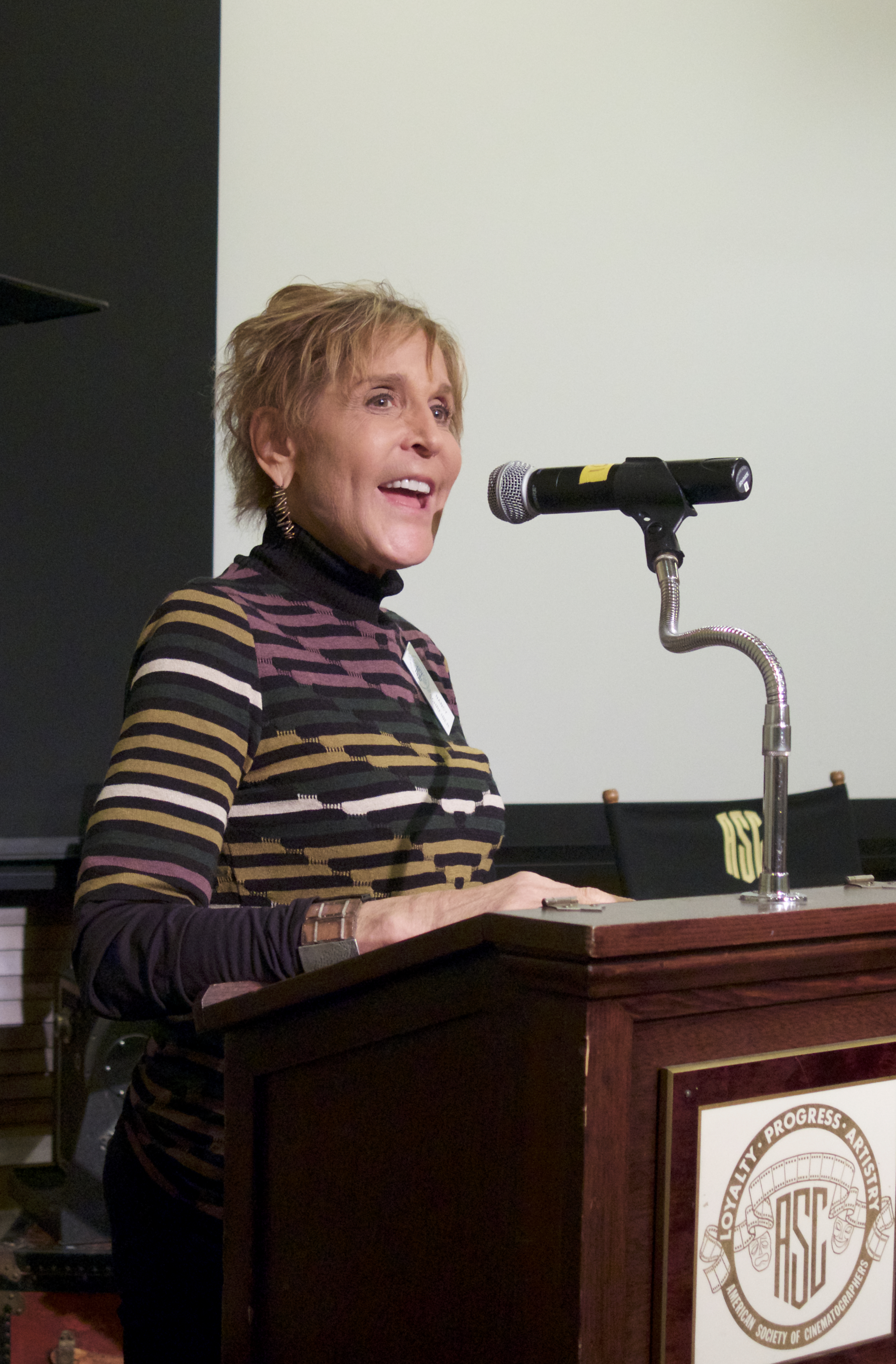
Schreiber agreed that saving money is key and advised people to borrow equipment and find a way to do their own projects. “It used to be really expensive,” she said. “But [the 2015 indie drama] Tangerine was shot on an iPhone. Don’t be snobby about the gear. It’s about what’s in your head and heart. Find a way to put your reel together.”
Irola counseled that one of the biggest things up-and-coming cinematographers have to overcome is “not feeling badly if you don’t get something you really wanted. This business can be extremely disappointing. When I started, and for a very long time, I took every job offered to me. But be careful not to think of yourselves as second- class citizens. You have to protect your own self-image.”
“Let people know what you want to do,” said Vincent. “The first thing I ask any intern or second assistant is, ‘Where are you headed?’ Choosing people you surround yourself with is very important. The attitude we can have in celebrating this glorious moment in time being here can go on. Pick a mentor from the women you see around you. Practice sisterhood. Don’t ask, ‘Why did she get this job and I didn’t?’ When you practice that in your own attitude, it spreads like wildfire. If you are grateful and supportive of those around you, it can help build momentum.”
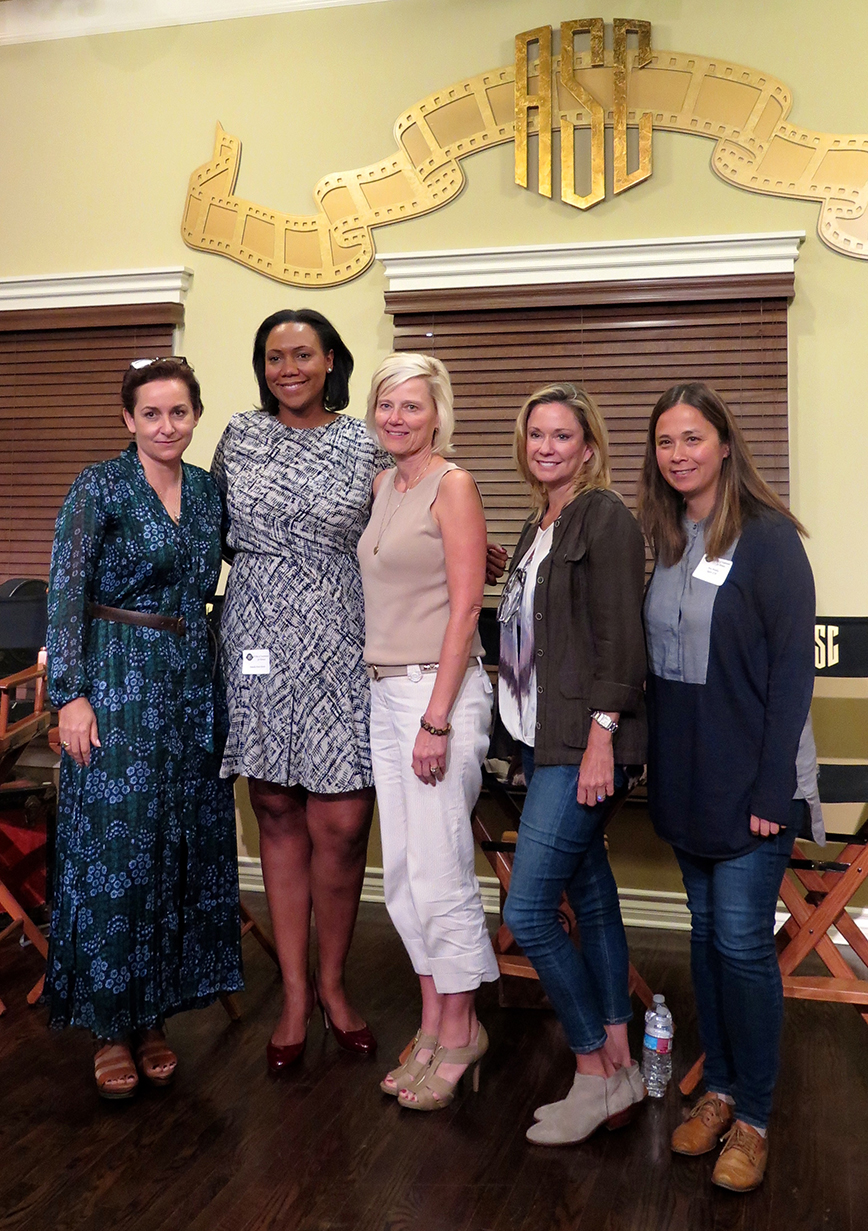
The afternoon session featured cinematographer-director Uta Briesewitz, ASC; Joanna Johnson, producer/director of The Fosters; Natasha Foster-Owens, director of Production-HBO West Coast; Panavision chief executive Kim Snyder; and ICM agent Ann Murphy. The panelists described their paths to careers they never guessed they would have as young women.
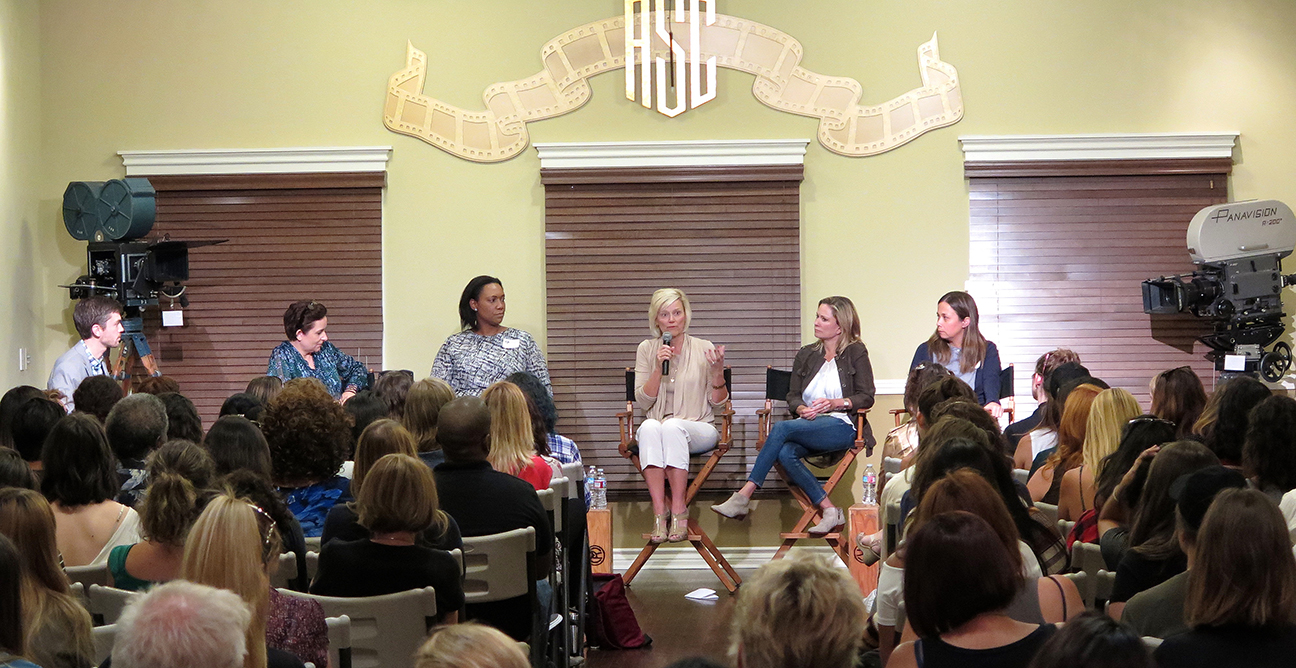
Snyder got her degree in computer science, then an MBA and was in finance for 10 years before moving into general management. “As you test things and live through it and have the experience, you’ll figure out what works for your,” she said. “My advice is to focus on that — it’ll lead to a path of happiness.”
Owens-Foster was working for her MFA at USC and trying to figure out what to do in the film world. “Through the process of elimination I realized that producing and that nurturing spirit is what carries me through,” she said, noting that her mother, a producer, was her role model. Murphy wasn’t happy being an advocacy lawyer, and took an internship in publicity at NBC. Through a series of productions, she ended up as a location coordinator, in the union. “I was in the office at 3:00 am and realized I couldn’t have a family even though I was on track to becoming a line producer,” she says. She got a job at ICM, but, at first, resisted the offer to be an agent, until her mentor told her she “had to let go of who you think you are to be who you ought to be.”
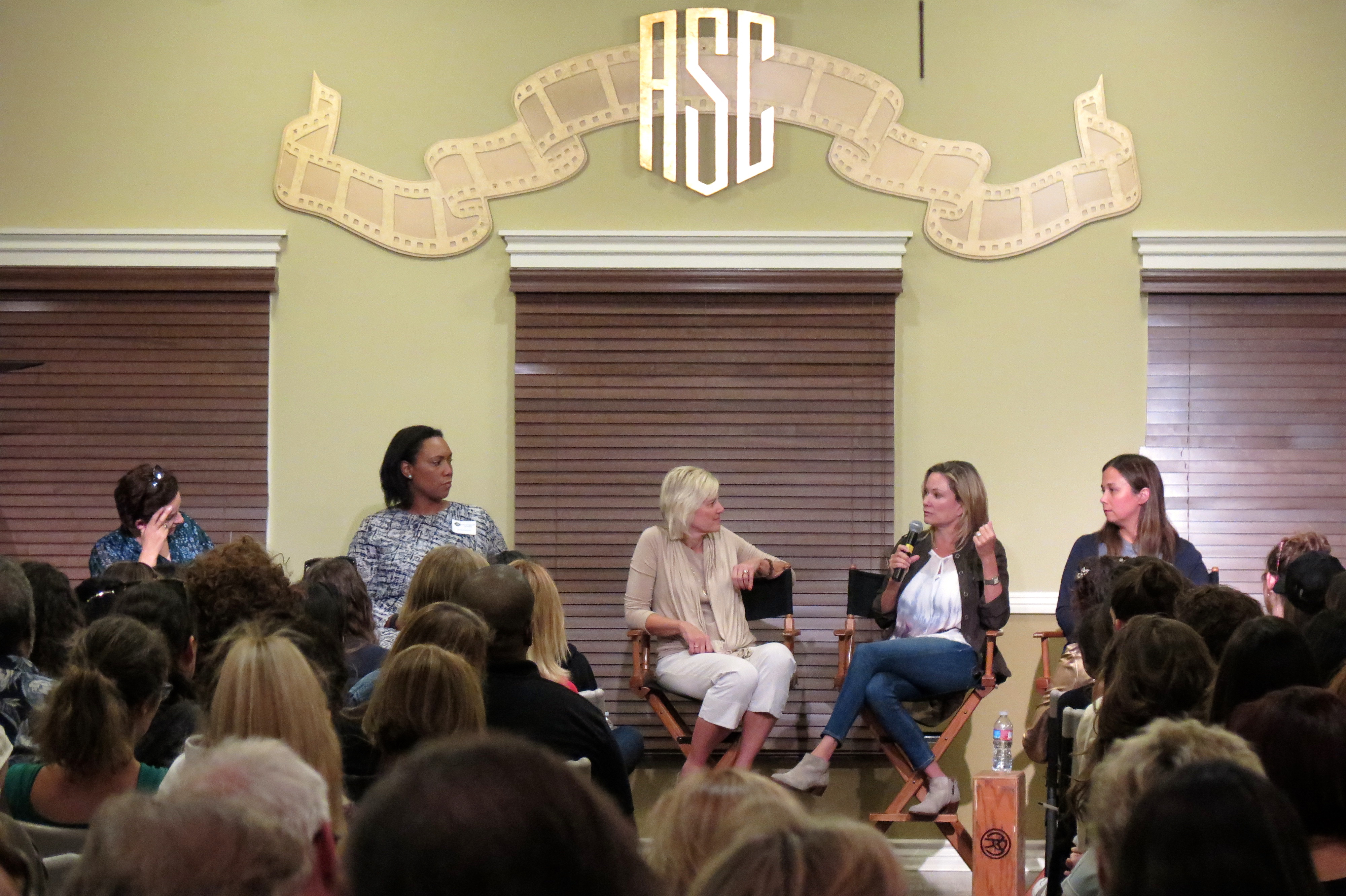
Johnson started out her career as an actor and, when she was 30, quit to become director Peter Berg’s assistant. But she was also always writing; before she knew it, a pilot she wrote was picked up and put in production. “Dream big,” she advised. “Don’t put limitations on yourself and don’t let the world see you as someone not qualified to do the job.”
Snyder agreed that, when an opportunity arises, “a man might say, ‘I can do that,’ even if he has less qualifications than the woman. While a woman would say, ‘I’m not sure I can do this, I’m not ready.’ If the opportunity arises, have confidence in yourself. My saying: ‘Fake it to you make it.’ You can’t fake it for a long period of time. You need the work ethic and skillset. But too many women don’t step into the opportunity.”
Briesewitz reports that when she was brought on to shoot the HBO series Hung, she inherited a crew. “I asked both my 2nds what they wanted to do,” she recalled. “One says he’s always wanted to be a first, and the second said, I want to be an operator. I moved them both up. I was in a secure, established enough place to be able to do that. But you have to say what you want. Nobody gets fired for expressing her ambitions.”
Murphy agreed but noted that, “it’s about timing. Build your relationships. Work really hard until the right opportunity comes.”
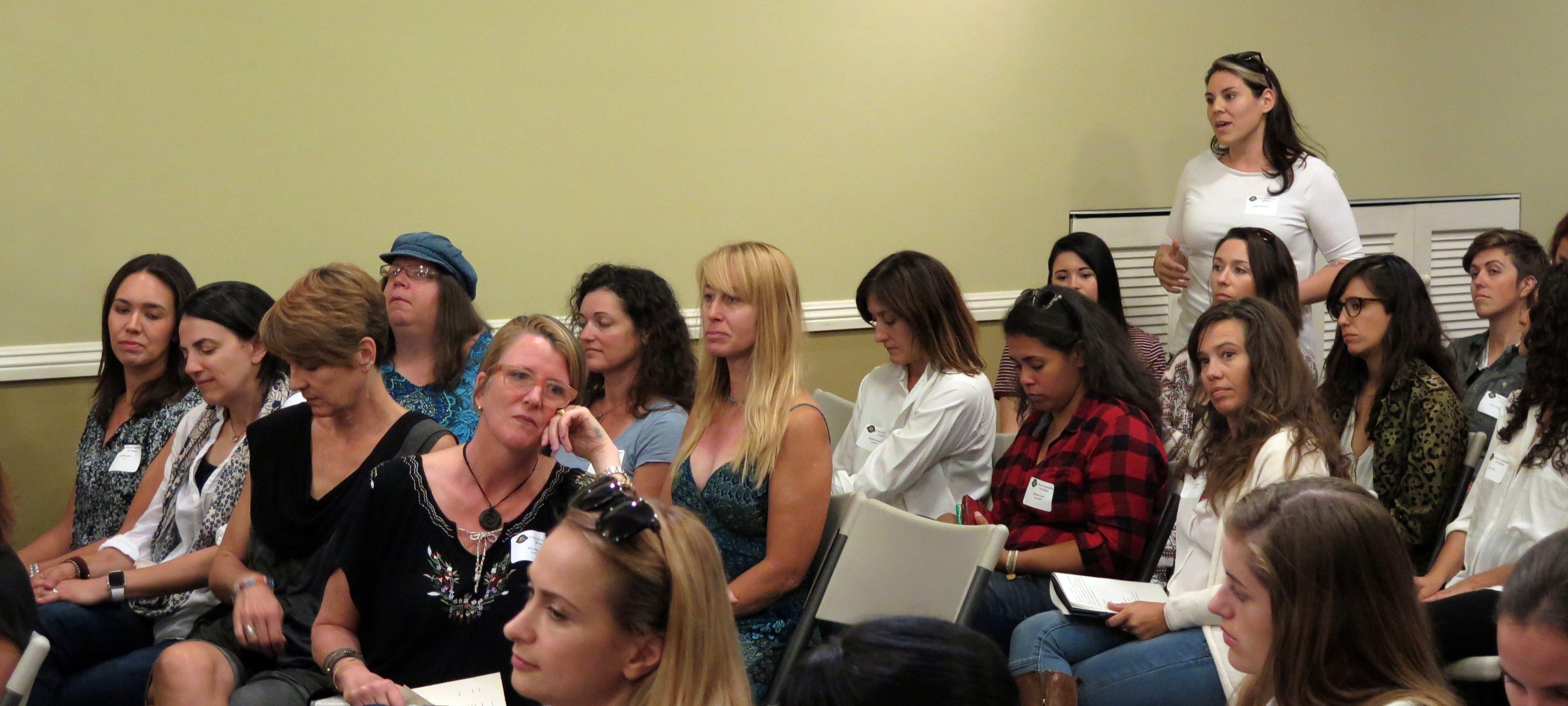
Witmer asked who had encouraged the panelists as they grew in their careers. Briesewitz said that, after being a cinematographer for 25 years and then moving into directing, she thought all the executive producers she worked hard for would be supportive and give her a shot. “And it was nothing,” she said. “That was a real shocker. I realized there was no interest in supporting me moving up as a director and that was harsh to realize that. I was way more valuable as a DP.” She got her first breaks from people she’d never worked with: after Collette Burson gave her the first opportunity on Hung, Jenji Kohan brought her on for the 100th episode of Weeds and the second episode of Orange is the New Black, and Jenny Snyder Urman hired her for Jane the Virgin. “I owe support to women I didn’t know before,” she said. “We all go through disappointments. Just walk around the next corner and someone will give you the shot you’re waiting for. I’m living proof of that.”
Some of the best lessons have come from being fired. “I think it’s good to fail,” said Johnson. “Women are afraid to fail sometimes, to not be perfect. You just have to get up and get back on the horse. Never give up, never give in.”
Murphy notes that, “you can have all the talent in the world and not necessarily succeed at what you want to do. Failing is part of it. How you stand back up and fight is showing who you are. The woman we heard this morning paved the way for us.”
Regarding the gender wage gap, Snyder mentioned that a lot of women don’t negotiate their salaries. “Most employers expect you to counter,” she said. “I’m not saying adding 35 percent, but you really have to advocate for yourself. There’s a difference in pay between the genders, and we have an obligation to fix that. We also have to have ownership and advocate for ourselves, asking for the respect we deserve.”

At the end of the event, attendees, ASC members and panelists mingled in the Clubhouse and patio area. One attendee, cinematographer Sandra De Silva deal Torre, flew in from Mexico to attend the event, on the advice of Carlos Diaz Munoz, president of Mexican Society of Cinematographers. What did she think of it? “These people at the ASC inspire me all the time,” she said. “Just being in the ASC Clubhouse is amazing, since my dream is one day to become a member. I’m here. What else could I ask for?”
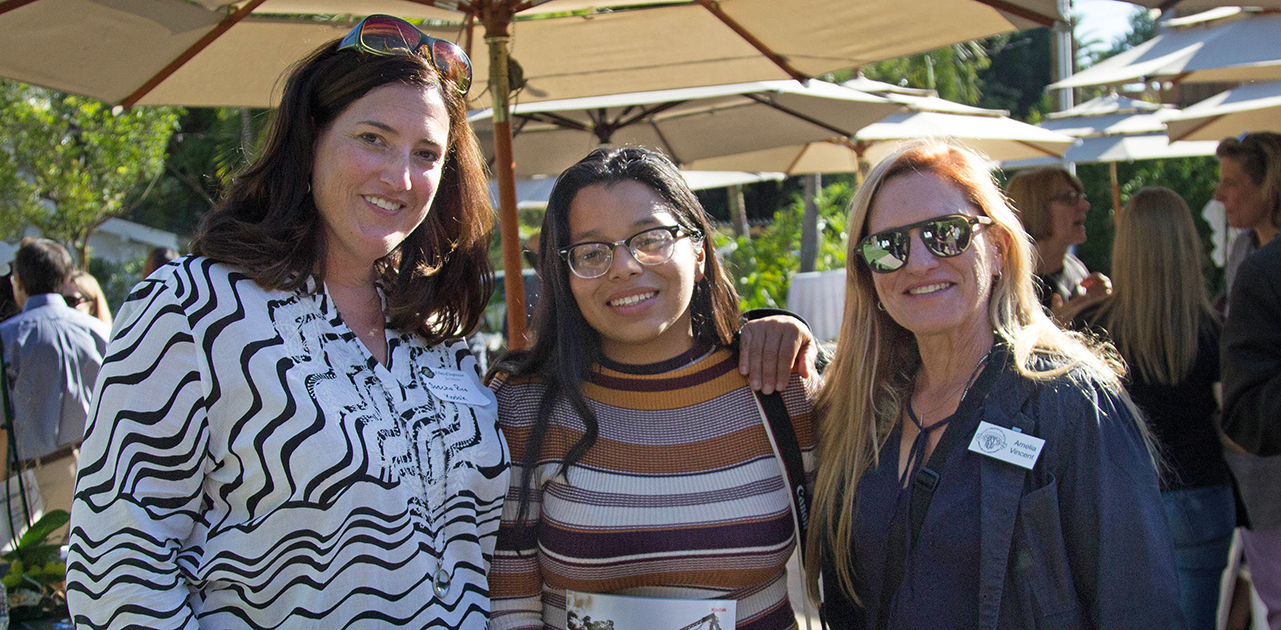
Local 600 operator Dianne Farrington called the panelists “very insightful, very honest, very frank. I’m grateful they took the time to come and have this discussion.”
First AC Mar Novo, who recently joined the Local 600, said she came for the motivation. “It’s been months of struggling with work,” said Novo, who considers Schreiber to be her mentor. “But now I see, we’ve all struggled, but we’re here and it’s happening.”
Cinematographer and Local 600 member Carissa Dorson said she has recently been working with more women and trying to hire women on her crew. “It’s been a year of women coming together,” she said. “I couldn’t pass it up.”
